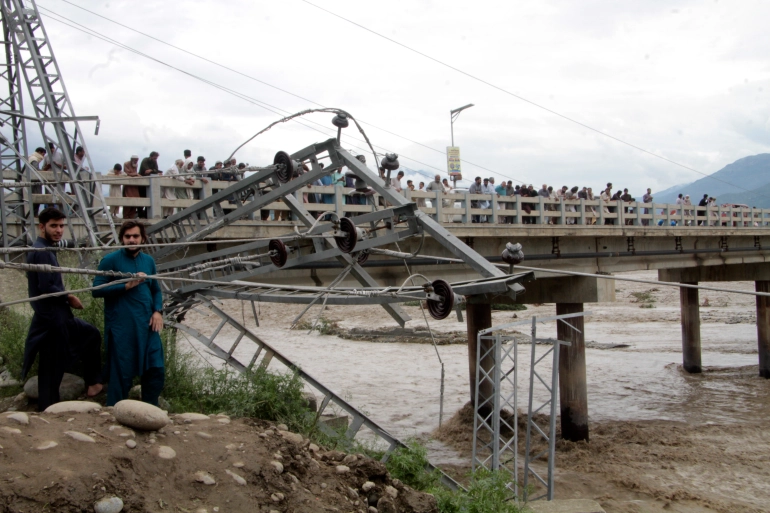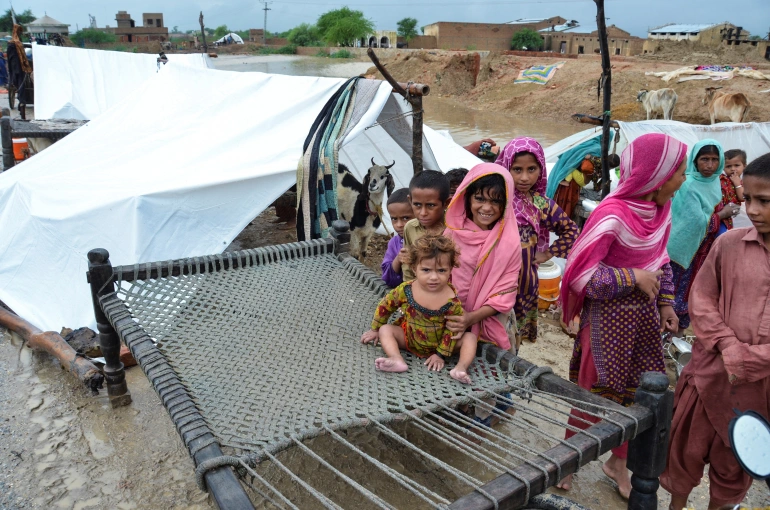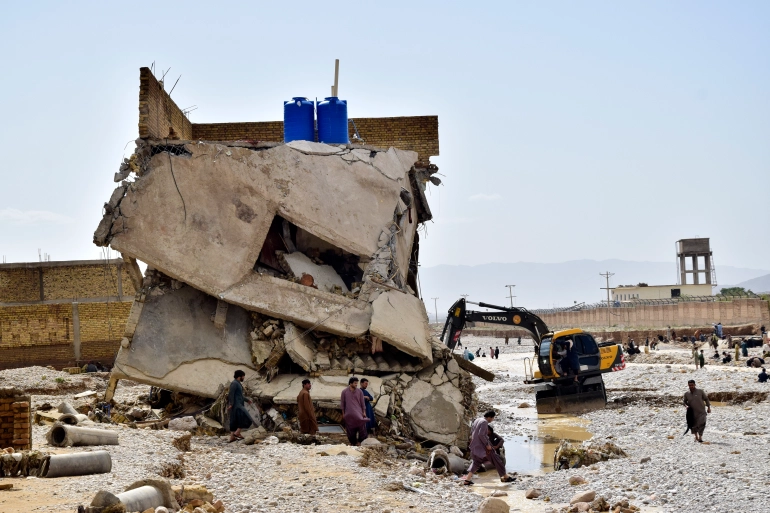Islamabad, Pakistan – The government has declared the recent devastating floods a “national emergency” after nearly 1,000 people died and more than 30 million children, women and families are “badly affected” as monsoon rains continue to lash the country.
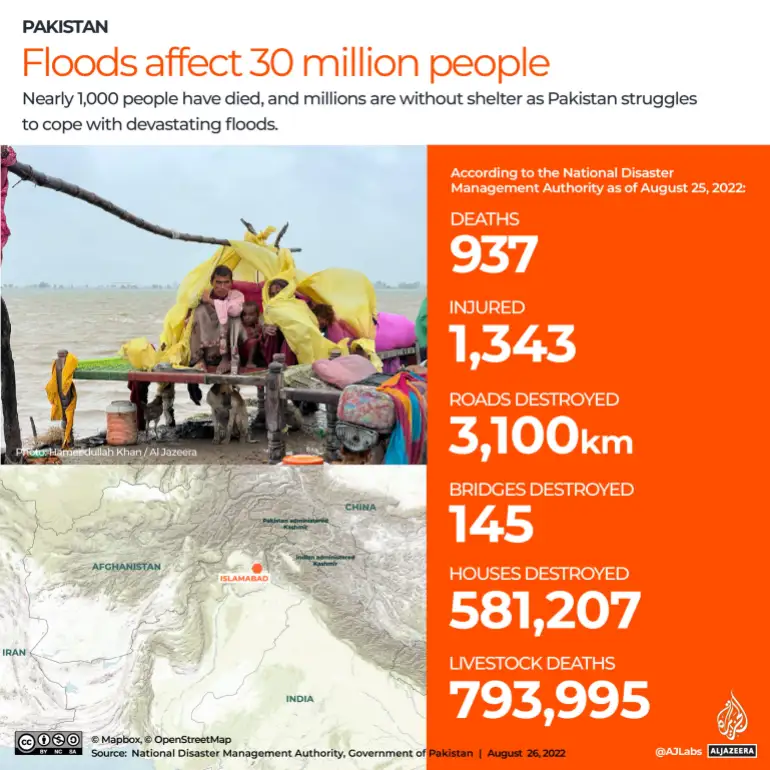
More than half of the casualties are from Balochistan and southern Sindh province where 234 and 306 people died respectively amid record rains that have affected half a million houses across the country.
Fida Hussain Shahani, a laborer from a remote village in Sindh, is grieving for his son who was swept away by the deluge.
“Yesterday, the flood water kept rising and entered our house. While trying to reach high ground, my 17-year-old son was left behind. I only managed to find his body this morning,” Shahani said from Shahani village on Friday.
The 42-year-old says his family of 12 has not been provided with any relief or aid from the government and only volunteers came to his help.
He said the magnitude of this year’s rains was unprecedented. “Things were not so bad even in the 2010 floods. We never had to leave our village but this time, everything is destroyed,” he said.
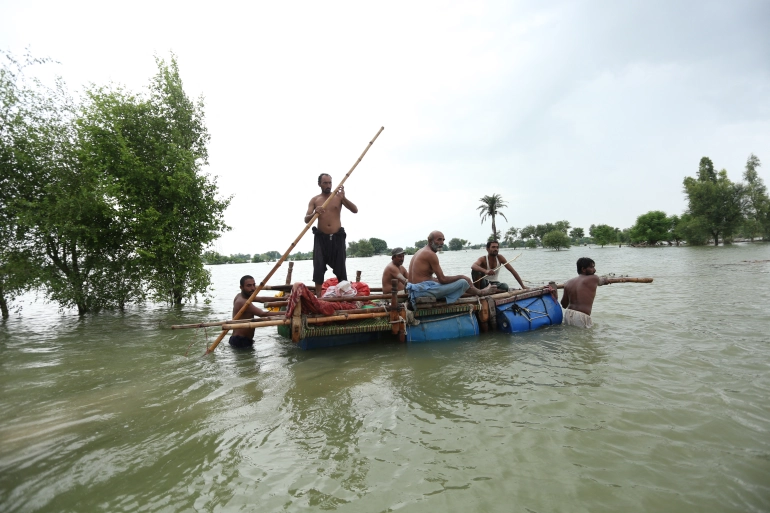
“Pakistan is going through its 8th cycle of monsoon; normally the country has only three to four cycles of [monsoon] rain,” the minister said during her news conference in Islamabad.
“Pakistan is under an unprecedented monsoon spell and data suggests the possibility of re-emergence of another cycle in September,” she said.
Two of the worst-hit provinces – Balochistan and Sindh – have received 298mm and 689mm rains respectively this year, which is about 400 percent more than the 30-year average.
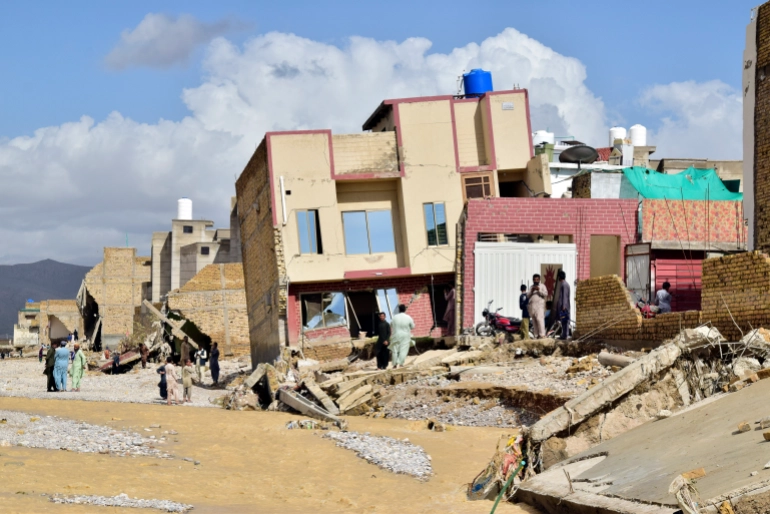
Pakistan is appealing for further international assistance as floods devastate the country, leaving people searching for higher, drier ground.
